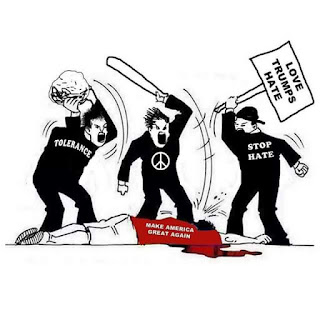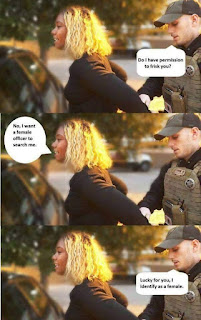written by Taos Turner
Wednesday October 19, 2016
BUENOS AIRES—Tens of thousands of women dressed in black stopped work for an hour on Wednesday in a widespread protest to bring attention to violence against women in Argentina after the rape and death of a teenage girl that shocked the nation.
Earlier this month, Lucía Pérez, 16 years old, was drugged, tortured and repeatedly raped before dying of a heart attack in the coastal city of Mar del Plata. Prosecutors say three men were arrested.
“The torture induced her death,” prosecutor María Isabel Sánchez said in a TV interview this month.
The attack hit a nerve in a country where a woman is murdered every 31 hours on average, according to the Meeting House, a nonprofit group here that tracks crime against women. In a recent 17-day period, 19 women were slain by men, the group said.
“What’s happening is terrible,” said Luz Martinez, a 34-year-old office worker as she stood outside her office with other women clad in black. “There is a fear that this could happen to you next. I wore black to show my solidarity and try to prevent this from happening again.”
Violence against women in recent months has triggered protests and calls for tougher sentencing guidelines across several countries in Latin America.
Small Arms Survey, a group based in Geneva that collects world-wide violence statistics, says half of the two dozen countries with the highest rates of murder against women—what’s known as femicide—are in Latin America. In the region, the most dangerous countries for women are El Salvador and Honduras, which clock an annual femicide rate of about 13.5 per 100,000, the group said.
The group considers a country’s female murder rate to be high if it tops three per 100,000.
Throughout the region, officials are trying to change a culture that many women say is permissive of violence. Colombia last year passed legislation that toughens punishment for those who commit certain crimes against women; Argentina did so in 2009.
“Latin America has a problem with machismo,” said Jhennie Salazar, a 25-year-old financial services employee who protested. “Society teaches women to watch out for themselves, but it doesn’t teach men to respect women.”
On Wednesday, women protested in Santiago, Chile, and last month in Lima, Peru. In May, Brazilians protested after images circulated online of dozens of men gang raping a 16-year-old girl in Rio de Janeiro.
Argentina’s femicide rate is lower than in most other countries in the Americas, at 1.4 per 100,000. But activists say violence is still serious, and many of the protesters said they wanted to send a message to a patriarchal society.
“It’s important for women in Argentina and the rest of Latin America to take control of their rights and fight against this,” said Nicole Neiman, director of Argentina’s National Council on Women, a department of the government’s executive branch that aims to improve social conditions for women.
The attack on Ms. Pérez came days after tens of thousands protested violence against women in the eastern Argentine port city of Rosario. On Wednesday evening in Buenos Aires, thousands of people, both men and women, marched through the streets of the city.
Graphic descriptions by the prosecutor’s office stunned Argentines. Authorities said Ms. Pérez’s attackers cleaned her body after raping and torturing her. Then they put her clothes back on and left her body at a clinic, in the hope of making it appear she had died from a drug overdose, the prosecutors said.
Matías Pérez, Ms. Pérez’s brother, wrote in a letter posted Monday on Facebook that Argentines need “to come together and take to the streets.”
“We have to scream all together, now more than ever,” Mr. Pérez wrote. “That’s the only way to avoid the killing of a thousand more Lucías.”
The Washington Post, USA
written by Amy B. Wang
Wednesday October 19, 2016
The brutal gang-rape and killing of a teenage girl in Argentina has shaken its citizens and sparked renewed protests against gender violence in the country.
Protesters called for a nationwide "women's strike" Wednesday after horrific details emerged about the death of 16-year-old Lucía Pérez.
Police said Pérez was picked up by her killers on Oct. 8 outside her high school in Mar del Plata, a coastal city about 250 miles south of Buenos Aires, according to El Pais.
She was held her against her will at the home of one of the men, where she was reportedly given large amounts of cocaine and marijuana, then repeatedly gang-raped and penetrated with a wooden pole, the newspaper reported.
The assault caused Pérez so much pain that she went into cardiac arrest, BBC News reported.
Two men brought Pérez's body to a local medical center, claiming she had overdosed on drugs, BBC reported. They had washed Pérez's body and changed her clothes beforehand, according to the Independent, but doctors noticed signs of "violent sexual penetration" upon closer inspection of the girl's injuries.
"I know it’s not very professional to say it, but I’m a mother and a woman," lead prosecutor María Isabel Sánchez said last week, according to the Independent. "And I’ve seen a thousand things in my career, but nothing equal to this litany of abhorrent acts."
The authorities named three suspects in the case, according to El Pais: Matías Farías, Juan Pablo Offidani and Alejandro Alberto Masiel.
Sanchez said police found several used condoms and sex toys at Farías's home, where the rapes allegedly occurred, the paper reported.
The gruesome case prompted calls for Argentine women to wear black on "Miercoles Negro," or "Black Wednesday," and to go on strike for an hour, regardless of their occupations.
"In your office, school, hospital, law court, newsroom, shop, factory, or wherever you are working, stop for an hour to demand 'no more machista violence,'" the march organizers wrote, according to BBC News.
"Machista violence" refers to violence spurred by male chauvinistic behavior.
Since her death, Pérez's grieving family members have joined in marches calling for an end to domestic violence and other horrific treatment of women.
"We can't understand such barbarity," her mother, Marta, told BBC News. "It's impossible to understand."
"The way they killed her was inhuman," Pérez's father, Guillermo, told the station.
In an emotional statement published by La Poderosa, the victim's brother, Matías, remembered his sister as someone who loved art, rock music and animals. Authorities initially refused his request to identify her body, until her brother insisted, he said.
Though the three suspects were in custody, Matías wrote that it was "not enough." He urged people to protest in the streets against such violence, saying it could happen to anyone.
"Only in this way will we prevent thousands more Lucía's being killed," Matias Pérez wrote. "And then we can close [Lucía's] eyes and see her rest in peace."
On Wednesday, the hashtag #NiUnaMenos — Spanish for "not one less" and the name of a movement to protest femicide — was trending on Twitter in Argentina.
Several politicians and other high-profile figures joined in support.
"For Florencia Aguirre de Coyhaique. For Lucía Pérez of Mar del Plata," Michelle Bachelet, the president of Chile, tweeted in Spanish. "For all women, I say with strength: Not One Less."
Florencia Aguirre was a 9-year-old girl whose body was found in her stepfather's woodshed in southern Chile this month, officials said.
Last year, the Ni Una Menos campaign also mobilized thousands across Argentina, as well as in Uruguay and Chile, to protest violence against women.
The demonstrations in June 2015 were sparked by outrage over similarly shocking cases.
In May of that year, a man allegedly beat his pregnant 14-year-old girlfriend to death, then buried her body in his courtyard, USA Today reported. A month earlier, the husband of a kindergarten teacher who had requested a divorce reportedly barged into her classroom — and slit her throat in front of her students, according to Agence France-Presse.
According to Ni Una Menos, one woman is killed every 30 hours in Argentina "just for being a woman."
Argentina’s Supreme Court recorded 286 murders of women "as a result of gender violence" in 2015, according to the Guardian.
Of the victims, 18 percent were younger than 20; 43 percent were ages 21 to 40.
Violence against women is not limited to Latin America and is a global problem, according to the United Nations, which cites "physical violence inflicted by an intimate partner" as the most common form of violence women around the world experience.
According to World Bank data, rape and domestic violence pose a greater risk to women between ages 15 and 44 than cancer, car accidents, war and malaria, the United Nations stated.
"Violence against women is not confined to a specific culture, region or country, or to particular groups of women within a society," the United Nations stated. "The roots of violence against women lie in persistent discrimination against women."






































No comments:
Post a Comment